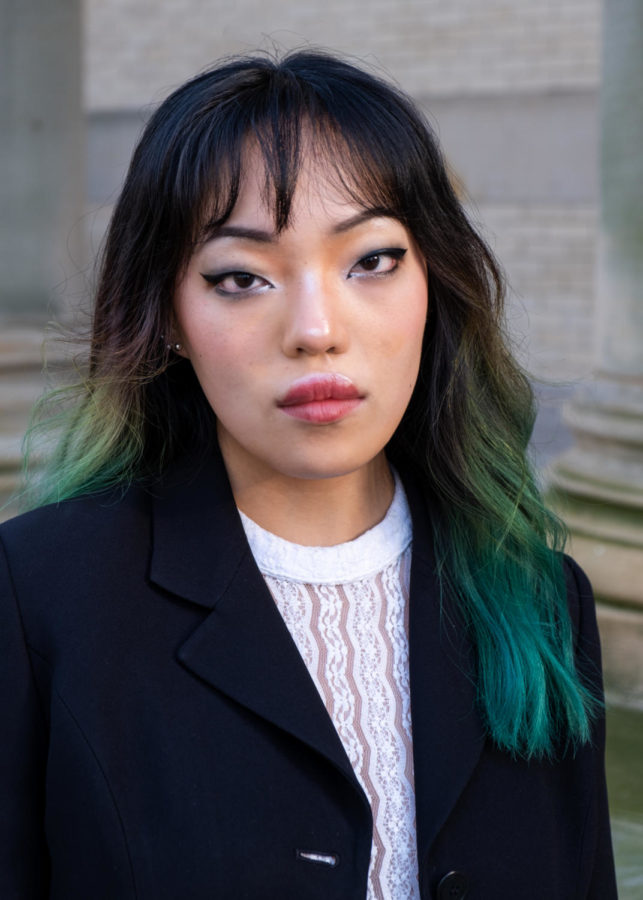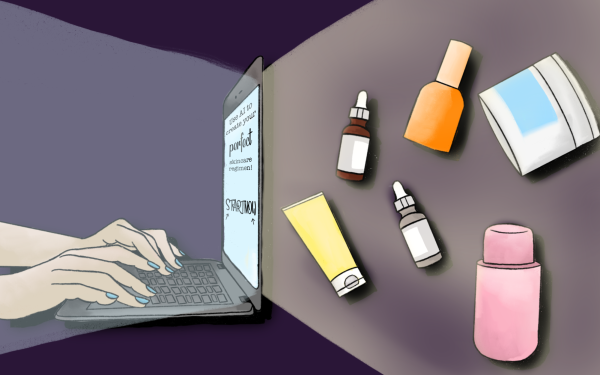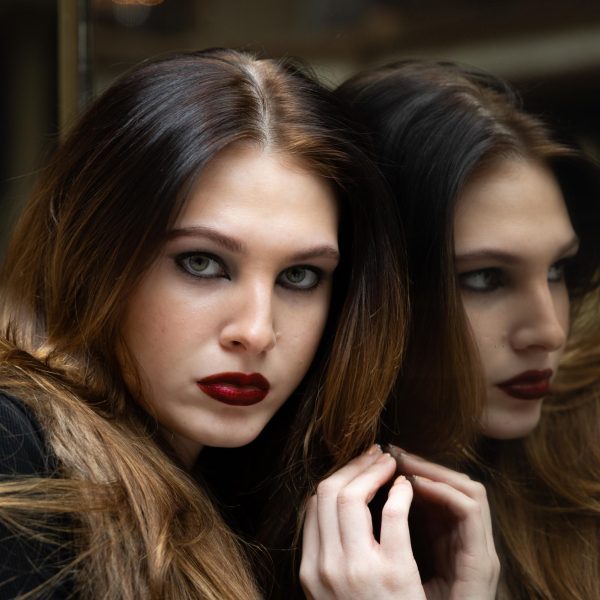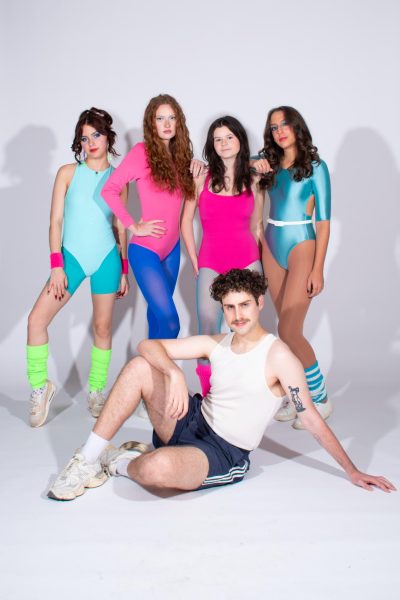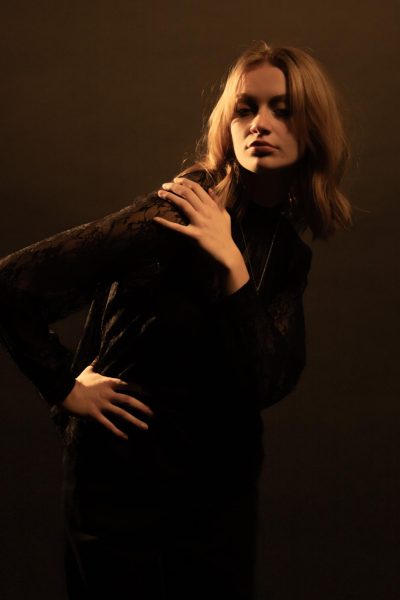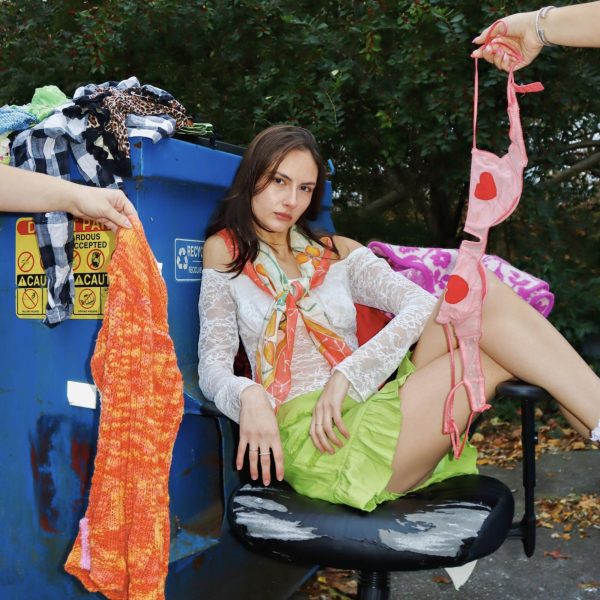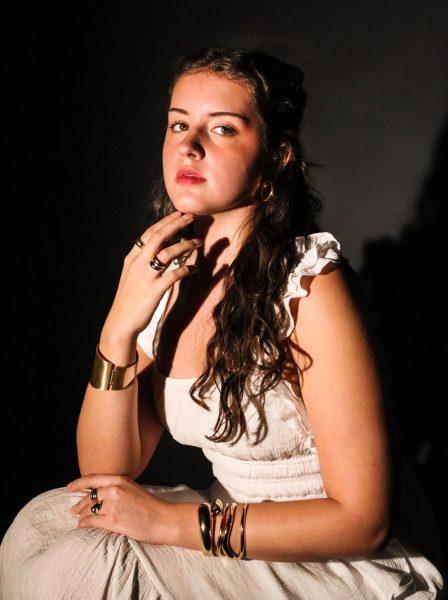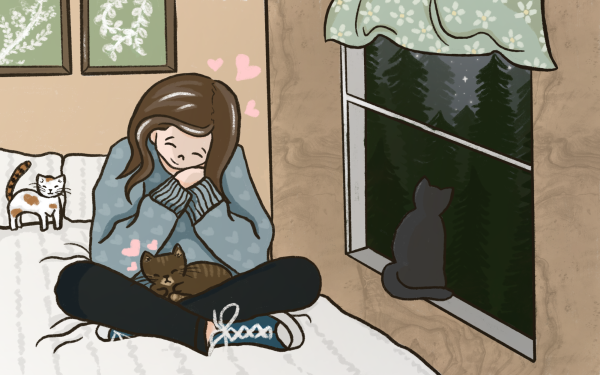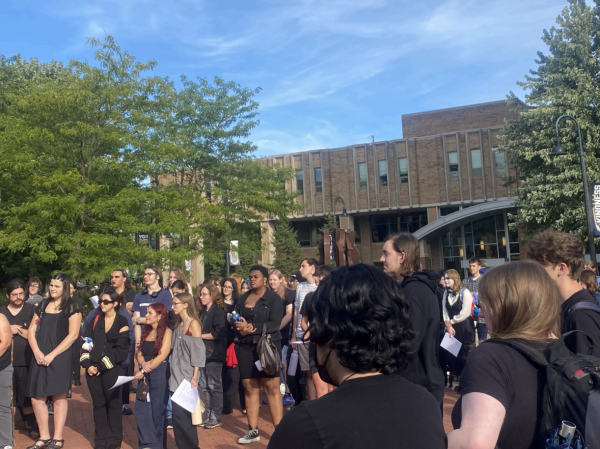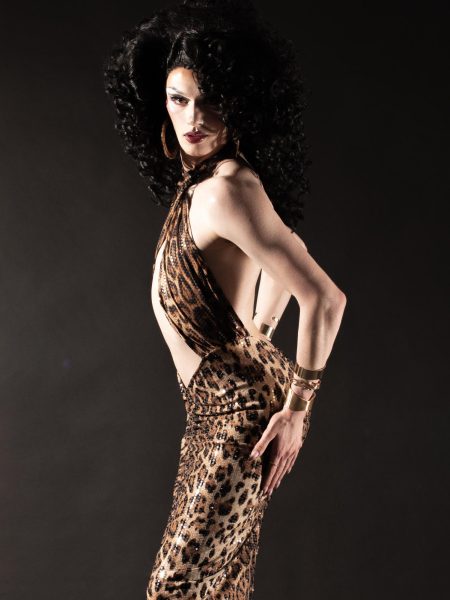facing pretty privilege as an asian american
photo by greta bell // model: liana boersma
The halo effect, lookism, pretty privilege, whatever you want to call it, all operate on the same idea: those considered beautiful get more benefits, more opportunities and more adoration than those that are considered average. There are studies and scholarly articles about it, but most people don’t need a scholar to tell them that pretty privilege is real, as evident by the 281.7 million views “Pretty Privilege” has on TikTok. The videos have a wide range of people explaining the benefits, while others speak about the downsides, but across the board, more people than not that claimed to have pretty privilege were white. Of course, there’s nothing wrong with being white, after all, we live in the United States where the majority of the population is of European descent. The larger problem with pretty privilege, something that seems to slip through the cracks of the discussion, is the intersectionality of race.
It is indisputable that anyone, no matter their size, gender expression, ability or race can be beautiful, but the difference between truly beautiful and stereotypically or “objectively” beautiful is vast. Those considered objectively beautiful are more likely to experience pretty privilege. As told by journalist Sagal Mohammed for My Imperfect Life, these people tend to “[conform] to traditional cis-gendered, Eurocentric beauty, often centering on youthful caucasian features, a thin, abled body, white skin, symmetrical features and sometimes with a tendency to appear ethnically ambiguous.”
In the U.S., we are constantly surrounded by this specific image of beauty. It’s plastered on billboards and magazines, and it’s tucked into our back pockets via social media. They all portray the image of large eyes, full lips and thin figures. It’s enough to make anyone feel insignificant when comparing themselves to these sculptures of perfected beauty, but for those of us that can’t even check off “Eurocentric,” how can we begin to catch up?
I grew up in a predominantly white area, like many of us living in the Midwest. For the most part, I had a happy childhood: loving parents, two older siblings, a warm bed and food, but there was always the nagging feeling of being ugly. At one-and-a-half years old, I was adopted by my white parents from China. Though they tried to celebrate my heritage by finding books and toys that reflected my image, it was a struggle throughout my childhood. Because the push for representation in children’s media has only begun in the past decade or so, I was surrounded by whiteness.
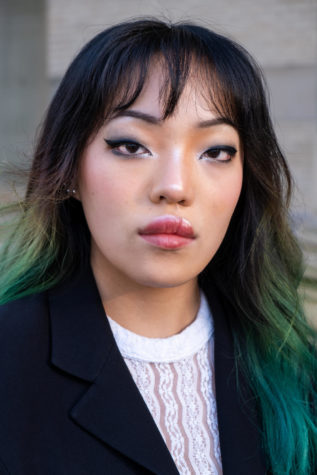
It wasn’t as if there was media saying Chinese people were ugly, but the absence of representation of beautiful Chinese women had such an impact on me. I associated pale skin, blue eyes and blonde hair with beauty, all features Barbie boasted, and wasn’t she the epitome of beauty? What started as a seed of insecurity in childhood has grown into a full complex as I’ve gotten older. How could I ever be beautiful if the baseline requirement is having European genetics? With the equation of pretty privilege to beauty, the idea that I can never obtain pretty privilege means I can never truly be beautiful.
I don’t hold this thought process to anyone else. I think with so many ideas similar to this, it becomes entirely internalized. As a reminder, anyone can be beautiful, but Eurocentric ideals have taken their toll on many of us, pushing for a narrative of whiteness as a requirement of beauty and, subsequently, pretty privilege.
By the time I got to middle school and beautification really fell into my hands, I did everything I could to shed my tan skin and thin eyes. I learned to do winged eyeliner at just the right angle to widen my eyes, and to this day, I shelter myself from the sun. Of course, I will never not be Chinese, but as I’ve gotten older and the concept of pretty privilege is raised, I’ve tried to follow the steps to obtaining the sought-after concept; This would include skincare, trying to stay slim and dressing myself in just the right way. Despite this, I still look in the mirror with some amount of disappointment. I will never reach the stereotypical beauty ideal of being white.
We all know that “beauty is only skin deep.” But it’s also undeniable that it has an effect on our daily lives. If someone gets more opportunities and is treated better due to their beauty, it seems to reason that pretty privilege should not have the gate of “Eurocentrism.” For this article, I texted a couple friends. The exchanges went something like “be honest, do you think I have pretty privilege?” My friends: “yes, but probably not super extreme because of racism.” Though my own complex holds me back, I am even more held back by participating in a society that has decided European features are the ideal.
So how do we unlearn this bias toward beauty? Hypnotherapist Andrew Pearson told My Imperfect Life, “In advertising, film, TV, art, photography, and even writing, people whose skin color was too dark, whose waistlines were too wide, whose faces were not symmetrical, or whose legs were paralyzed struggled to find representation in mainstream media. But if this social conditioning can be learned, then it follows that it can be unlearned.”
By widening our horizons of what is considered beautiful, we can also broaden the horizons of who can benefit from pretty privilege. Better yet, we can work on creating a more open-minded generation that leaves behind the concept of conventional beauty altogether. Though we may find ourselves dazzled by someone’s beauty, it’s important to keep in mind that the quality of a person always outranks looks.
Support Student Media
Hi! I’m Catie Pusateri, A Magazine’s editor-in-chief. My staff and I are committed to bringing you the most important and entertaining news from the realms of fashion, beauty and culture. We are full-time students and hard-working journalists. While we get support from the student media fee and earned revenue such as advertising, both of those continue to decline. Your generous gift of any amount will help enhance our student experience as we grow into working professionals. Please go here to donate to A Magazine.

